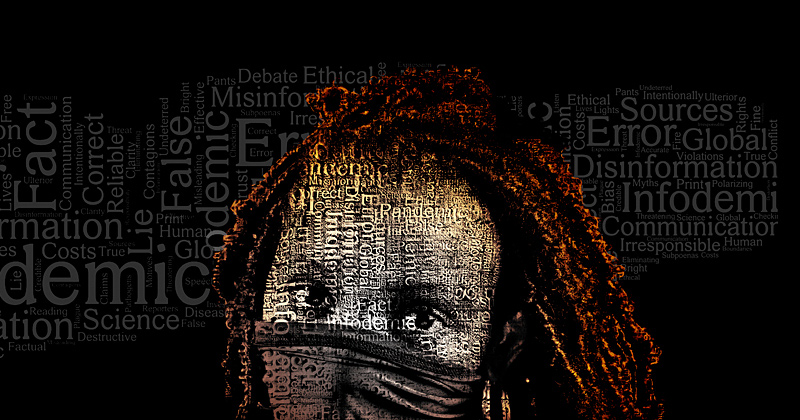


Adding peril to a pandemic
Photo illustration by Jeffrey C. Chase October 14, 2022
Deadly ‘infodemic’ fueled COVID’s costly global march
Editor’s note: This article appears in the new, all-digital issue of the University of Delaware Research magazine. This issue focuses on the importance of effective communication in our lives and tips for ensuring a healthy information diet. It also covers ways faculty and students are using research to explore new worlds, including volcanoes.
As our world continues its struggle against the COVID-19 pandemic, another global threat has proven tougher to arrest, just as lethal and likely to be a key factor in crises to come.
The World Health Organization in 2020 identified this emerging threat as an “infodemic,” with high-transmission contagions that can carry misinformation (error and distortion) and disinformation (intentionally misleading or false) at the speed of light. The plague circulates freely, undeterred by facts, evidence or editorial standards.
Unlike the pandemics that came before it, COVID-19 emerged in the midst of this perilous environment, demonstrating again the critical need for effective science communication, shaped with clarity and keen attention to ethical boundaries.
“It’s not merely an academic topic,” said University of Delaware ethicist Tom Powers, associate professor of philosophy and director of the Center for Science, Ethics and Public Policy. “Lives hang in the balance.”
Learn more: Adding Peril to a Pandemic.
Contact Us
Have a UDaily story idea?
Contact us at ocm@udel.edu
Members of the press
Contact us at mediarelations@udel.edu or visit the Media Relations website

